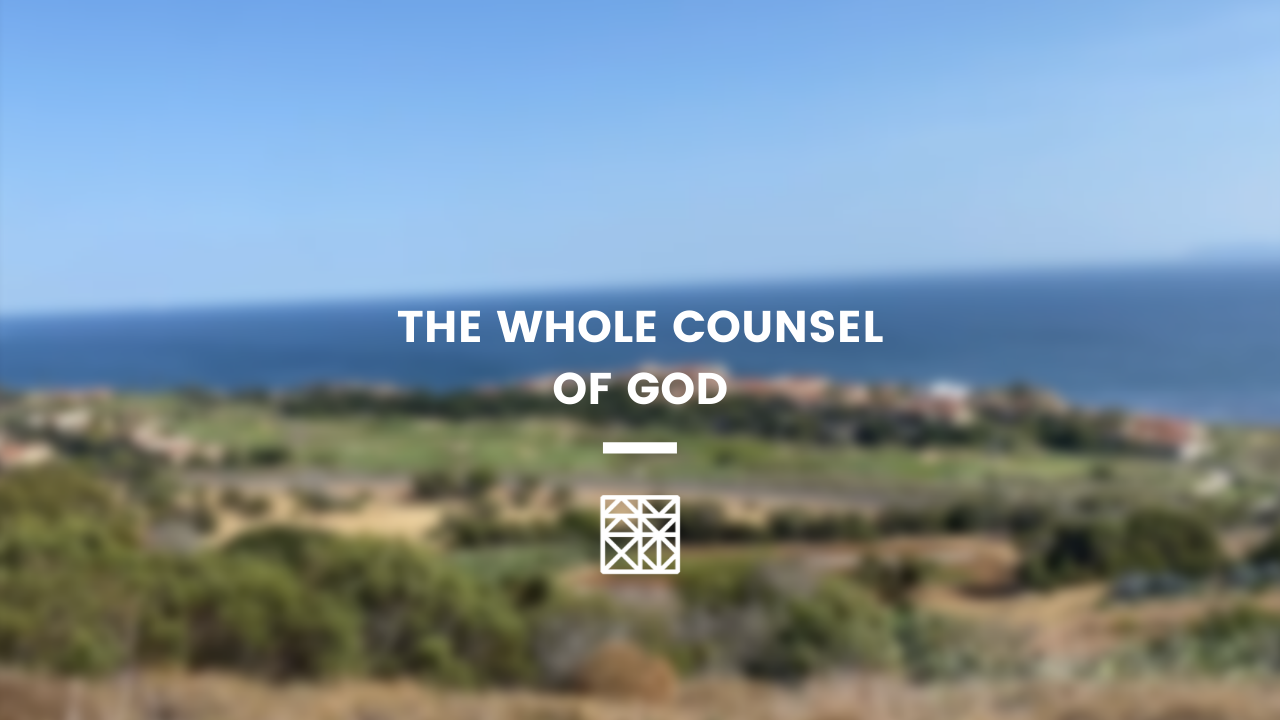2 SAMUEL 14 - THE WHOLE COUNSEL OF GOD
2 Samuel 14
In Acts 20:27 as Paul is saying his final good byes, anticipating his arrests and death as he sailed for Jerusalem, he declared “for I did not shrink from declaring to you the whole counsel of God.” So often when we seek or obtain counsel and advice, we are mostly concerned with whether it is right or wrong. But in today’s scripture we will see that it is just as important to ask if it is complete, and most importantly is it Godly.
In Chapter 14 Absalom is in self-exile in Geshur, a neighboring kingdom, and we are told that David is continuing to long for his son. We are already well aware that David is quite sentimental and we can imagine the difficulty of dealing with one dead son and another who is self-banished.
Joab sees the longing of David and decides he will find a way to resolve this situation.
We are not told the motives of Joab. Was this the reaction of a dear friend? Was Joab concerned that Absalom was a danger for David as a potential rival for the throne (as the adage says, keep your friends close but your enemies closer). What is left open to question, given Joab’s history, is whether his concern was primarily to do that which is right in the eyes of God?
Whatever his motivation, Joab devises a rather elaborate plan to get David to realize his need to take action (and also to guide the action he takes). Why Joab did not feel he could directly confront David is a good question. But it is reminiscent of Jesus’ admonition to be wise as serpents and innocent as doves. And learning that how we deliver a message is as important as the message is not a bad lesson to learn.
Joab seeks out a “wise” woman he knows from a city (Tekoa) more than 10 miles from Jerusalem. Joab knows to find someone impossible for David to know and who will conduct themselves appropriately in the presence of the King. The woman is to explain to the King that she is a widow and plead before the King for the life of her son who she is to declare has killed his brother, like Absalom. Given the woman’s circumstances, David promises her that, contrary to the law, her son is to be shown mercy.
The widow then uses David’s declaration of mercy to convict the king concerning his own son, whom he has allowed to be banished in Geshur. David sees the hand of Joab in this exchange and tells Joab “Behold now, I grant this; go, bring back the young man Absalom.” But the condition by David for Abasalom’s return was that he was to “….dwell apart in his own house; he is not to come into my presence.”
Joab is correct that David is frozen into inaction because of the personal nature of these circumstances. Joab is correct that something needs to be done about Absalom. Joab may even be correct that Absalom needs to be brought back to Israel. But Joab provides no counsel, to his friend, and he nor David seek any Godly counsel, which might have provided the Godly means for Absalom’s return.
God is a personal God and his greatest desire is reconciliation between God and man and secondarily reconciliation between men. However, true reconciliation requires repentance, but also just recompense. We see neither in the return of Absalom.
It is hard to determine the rightness or wrongness of Joab’s advice, given its incompleteness. David needed to have Absalom return, but as king and as a father he needed to do it in a manner that would have provided for reconciliation. Instead David allows the bitterness of the circumstances that brought both David’s house and the nation of Israel to this point to fester, which will ultimately lead to the rebellion of Absalom.
In this we see the mystery and mastery of the gospel. God is building his Kingdom. And that Kingdom is made up of wayward children, like Absalom, who have sinned terribly. And God knows for there to be true peace in his Kingdom, it will require true reconciliation, between God and men, and then amongst men. This reconciliation requires repentance and just recompense. God, through the sacrifice of Jesus, provided the just recompense, but man must repent. God offers us all entry into His Kingdom (our home) if we will simply repent and accept Jesus’ sacrifice as payment for our sins. You don’t have to remain in your self-exile. God calls you home today, if you will repent.

